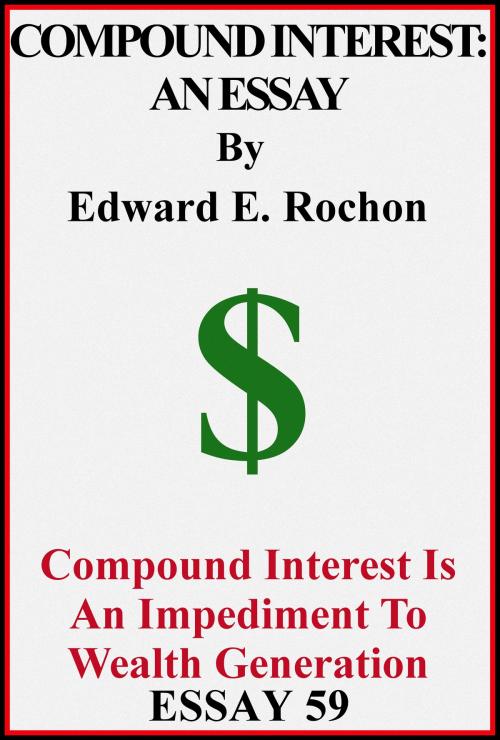Compound Interest: An Essay
Nonfiction, Social & Cultural Studies, Political Science, Politics, Economic Policy, Business & Finance| Author: | Edward E. Rochon | ISBN: | 9781311768308 |
| Publisher: | Edward E. Rochon | Publication: | February 8, 2015 |
| Imprint: | Smashwords Edition | Language: | English |
| Author: | Edward E. Rochon |
| ISBN: | 9781311768308 |
| Publisher: | Edward E. Rochon |
| Publication: | February 8, 2015 |
| Imprint: | Smashwords Edition |
| Language: | English |
The preface notes the debate about the ethics of lending at interest, and justifications to get around the ethical matters. It introduces the topic, condemning compound interest. Chapter 1 discusses the topic of the cost of money, a fee, rather than true interest. Chapter 2 notes that both lender and borrower are at risk when lending and borrowing money and the consequences. Chapter 3 goes into the matter of what is fair with respect to economic pricing and loans, and proffers that compound interest is not justified by the quandary. Chapter 4 notes that compound interest has more to do with relative wealth, the same economic pie redistributed to the detriment of society, rather than the generation of absolute wealth that increases the size or number of pies available. It suggests that banks charging simple interest on loans, while investing assets in entrepreneurial activity as a partner will generate absolute wealth and remove bitterness against lenders. A warning of consequences that invariably follow, if wealth generation is not the primary goal of state and business.
The preface notes the debate about the ethics of lending at interest, and justifications to get around the ethical matters. It introduces the topic, condemning compound interest. Chapter 1 discusses the topic of the cost of money, a fee, rather than true interest. Chapter 2 notes that both lender and borrower are at risk when lending and borrowing money and the consequences. Chapter 3 goes into the matter of what is fair with respect to economic pricing and loans, and proffers that compound interest is not justified by the quandary. Chapter 4 notes that compound interest has more to do with relative wealth, the same economic pie redistributed to the detriment of society, rather than the generation of absolute wealth that increases the size or number of pies available. It suggests that banks charging simple interest on loans, while investing assets in entrepreneurial activity as a partner will generate absolute wealth and remove bitterness against lenders. A warning of consequences that invariably follow, if wealth generation is not the primary goal of state and business.















